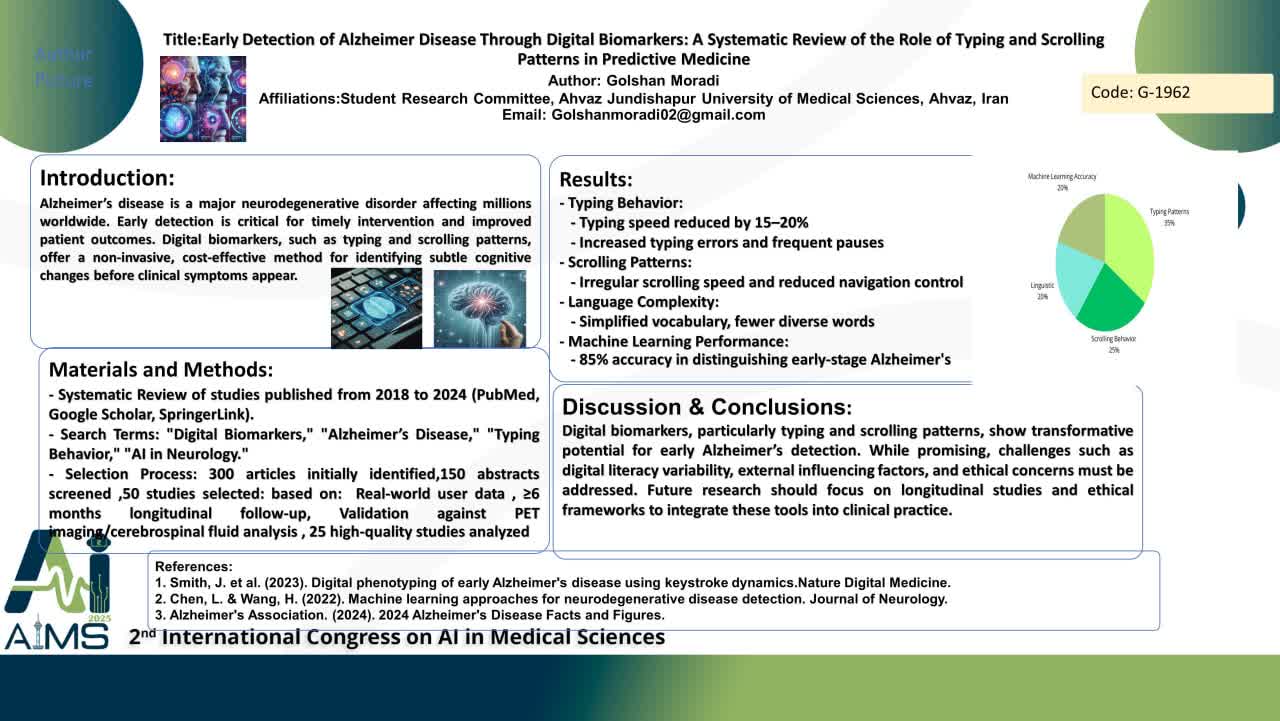Early Detection of Alzheimer Disease Through Digital Biomarkers: A Systematic Review of the Role of Typing and Scrolling Patterns in Predictive Medicine
Code: G-1962
Authors: Golshan Moradi * ℗
Schedule: Not Scheduled!
Tag: Clinical Decision Support System
Download: Download Poster
Abstract:
Abstract
Background and Aims: Alzheimer's disease is one of the most challenging neurodegenerative disorders worldwide, imposing immense social and economic burdens on patients and healthcare systems. Early diagnosis of Alzheimer's is vital for timely interventions and improved patient outcomes. This review explores the potential of digital biomarkers, specifically typing and scrolling patterns, as predictive tools for early detection. The hypothesis suggests that digital biomarkers can detect cognitive decline years before clinical diagnosis. Method: A systematic review was conducted, analyzing studies published between 2018 and 2024. Research articles were sourced from PubMed, Google Scholar, and SpringerLink databases using keywords such as "digital biomarkers" and "Alzheimer's disease." From an initial pool of 300 articles, 150 abstracts were screened, and 50 studies met inclusion criteria: real-world user data, a longitudinal design with six-month follow-ups, and validation against standard diagnostic benchmarks like PET imaging. In-depth analysis was carried out on 25 selected studies. Results: The review identified significant behavioral changes in digital interactions among individuals in the early stages of Alzheimer's disease. Key findings include reduced typing speed (15–20%), increased typing errors, simplified linguistic structures, and irregular scrolling behaviors. A notable study by MIT demonstrated that digital biomarkers could detect cognitive decline up to 8–10 years before clinical diagnosis, with machine learning algorithms achieving an average accuracy of 85%. Conclusion and Discussion: Digital biomarkers, particularly typing and scrolling patterns, show transformative potential in the early detection of Alzheimer's disease. These methods are non-invasive, cost-effective, and scalable for broad implementation. However, challenges such as variability in digital literacy, external confounding factors, and ethical concerns around data privacy must be addressed. Future research should focus on longitudinal studies with diverse populations and the development of robust ethical frameworks to integrate these tools into clinical practice.
Keywords
Digital Biomarkers, Alzheimer's Disease, Typing Patterns
